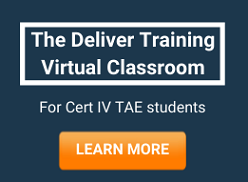| Characteristic | How it affects your learning program | |
|---|---|---|
| level and breadth of experience | Lots of experience | · Pace of activities may be faster |
| Narrow breadth | · Need for detailed explanations may be required |
|
| special needs, physical or psychological age | Advanced development | · Learner will require stimulating activities |
| Poor vision | · Large print tasks, with emphasis in verbal learning |
|
| motivation for learning | High motivation | · Lots of discussion and range of activities |
| Low motivation | · Short bursts of highly personally relevant activities |
|
| language, literacy and numeracy needs | Low literacy | · Avoid use of written activities |
| Poor English skills | · Use non-technical language |
|
| learning style and preferences. | auditory | · Focus on spoken tasks |
| kinaesthetic | · Focus on tasks that have a physical component |
|
| socio-economic background cultural background and needs | Unique culture | · Ensure activities are culturally appropriate |
| Low income background | · Provide all resources that are required (eg, stationery, morning tea) |
|
| level and previous experiences of formal education | Incomplete high school | · Need for high levels of support for how to learn as well as what to learn |
| University professor | · Opportunities for peer learning to use their knowledge for other learners |
|
| skill or competency profile | Already competent | · Move toward RPL/RCC |
| Very low levels | · Move toward bridge training before entering course related to actual training needed | |
| age | Older | · Include opportunities to share experiences |
| Younger | · Provide context and relevance for training |
Information in this section relates to:
Question 16 of Short Answer Questions 1









